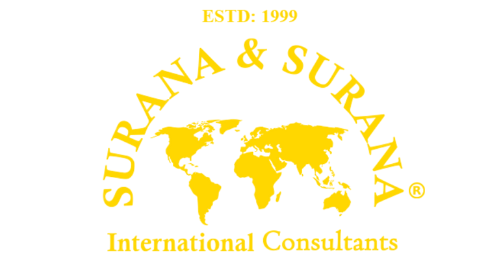Introduction
The Evolving Landscape of Intellectual Property in 2024
As we stand on the threshold of 2024, the landscape of intellectual property (IP) continues to evolve at an unprecedented pace. In this digital era, where innovation and creativity are the bedrocks of success, understanding and safeguarding IP rights has become more crucial than ever for business owners, decisionmakers, and entrepreneurs. This blog aims to shed light on the common pitfalls in the realm of IP, focusing on both the unique challenges faced in India and the global generic IP mistakes that can cost businesses dearly.
Why Intellectual Property Matters More Now
Intellectual Property rights are not just legal concepts; they are pivotal assets that can define a business’s success or failure. In the fastpaced business environment of 2024, where competition is fierce, and technological advancements are rapid, IP serves as a critical tool for maintaining a competitive edge. From trademarks that protect your brand identity to patents safeguarding your innovations, and copyrights securing your artistic and literary works, each aspect of IP plays a significant role in ensuring your business’s longterm viability and profitability.
The Indian Context: A Market of Unique Challenges and Opportunities
India, with its dynamic mix of tradition and innovation, offers a unique landscape for intellectual property rights. This burgeoning economy, known for its technological advancements and rich cultural heritage, presents both significant opportunities and unique challenges for businesses in the realm of IP. Understanding these distinct aspects is crucial for anyone looking to establish or expand their business in India.
Challenges in Navigating Indian IP Laws
- Diverse Regulatory Framework: India’s IP laws are a complex amalgamation of influences from its colonial past and modern global standards. Navigating this diverse regulatory framework requires indepth knowledge and careful consideration, especially for businesses unfamiliar with the Indian legal system.
- Enforcement Issues: Despite robust laws, enforcement of IP rights can be challenging. Businesses often face hurdles in the form of delayed judicial processes and inconsistent application of laws across different states.
- Counterfeiting and Piracy: India has been grappling with issues of counterfeiting and piracy, especially in sectors like pharmaceuticals, technology, and entertainment. Protecting IP from such infringements is a significant challenge for many companies.
- Patent and Trademark Backlogs: The backlog in processing patents and trademarks is a notable issue, leading to delays in securing IP rights, which can be critical for businesses in fastmoving industries.
Opportunities in the Indian IP Landscape
- Growing Awareness and Improving Infrastructure: There’s a growing awareness about the importance of IP in India, accompanied by government initiatives to strengthen IP infrastructure, such as the National IPR Policy.
- Expanding Market for Innovation: India’s market, with its vast and diverse consumer base, offers tremendous opportunities for innovative products and services. Effective IP management can provide a competitive edge in this expanding market.
- Favorable Policies for Startups and Tech Companies: The government’s focus on promoting startups and technology companies includes supportive IP policies, making it an opportune time for new ventures and innovations.
- Collaboration and Joint Ventures: The Indian market is becoming increasingly conducive to collaborations and joint ventures, offering foreign companies a way to enter the market with a local partner wellversed in the nuances of Indian IP laws.
Navigating the Global IP Maze
On the global front, the complexity multiplies. Different countries have different IP laws, and what works in one jurisdiction may lead to legal entanglements in another. In the globalized economy of 2024, where businesses are not restricted by geographical boundaries, having a comprehensive understanding of international IP laws and how they interact is essential. It’s no longer just about protecting your IP at home but ensuring it’s safeguarded across the globe.
Bridging the Knowledge Gap
This blog post serves as a bridge to fill the knowledge gap in IP rights management. Whether you’re an emerging startup in India or a multinational corporation with a global footprint, understanding the common IP mistakes and how to avoid them can save your business from costly legal issues and lost opportunities. We aim to provide you with insights and actionable knowledge to navigate the complex world of IP in 2024.
In the following sections, we will delve into the top five IP mistakes businesses make in India and globally, backed by recent case studies and factual data. This journey through the intricate world of intellectual property rights will equip you with the knowhow to protect your most valuable assets and ensure your business thrives in the competitive landscape of 2024.
Common IP Mistakes in India
Mistake 1: Neglecting Early Trademark Registration
In India, a common oversight by many new businesses is the delay or neglect in registering their trademarks. A trademark is not just a symbol, name, or phrase; it’s an identity that distinguishes a business and its products or services in the market. Early registration of a trademark is crucial for legal protection against infringement and misuse.
Implications for Business:
- Brand Identity Risk: Without a registered trademark, businesses risk having their brand identity copied, leading to confusion among consumers and dilution of the brand’s value.
- Legal Limitations: Unregistered trademarks have limited legal protection, making it challenging to enforce rights and seek remedies in cases of infringement.
- Market Positioning: Delay in trademark registration can impede a business’s ability to establish a strong market presence, especially if competitors register similar marks.
Case Study:
A notable case is that of a burgeoning Indian startup, ‘Zara Foods.’ Zara Foods started as a small restaurant chain but delayed trademarking its name. Another company with a similar name, ‘Zaara Foods,’ registered the trademark first. This led to legal disputes, with ‘Zara Foods’ having to rebrand, resulting in significant financial losses and a setback in market positioning. The case highlights the importance of timely trademark registration to safeguard business identity and avoid costly legal battles.
Mistake 2: Overlooking Patentability Criteria
Many Indian businesses, especially in the tech and pharmaceutical industries, fail to fully understand and meet the patentability criteria, which include novelty, non-obviousness, and industrial applicability. Ignoring these criteria can lead to patent application rejections or weak patents that are easy to challenge.
Implications for Business:
- Wasted Resources: Significant resources spent on research and development can go to waste if the outcome is not patentable.
- Competitive Disadvantage: Without patent protection, innovative products can be easily replicated by competitors, leading to lost market share.
- Investment Challenges: Investors are often hesitant to fund ventures with uncertain IP protection, impacting a business’s ability to attract funding.
Case Study:
An illustrative example is ‘Innovatech Electronics,’ an Indian tech company that developed a new type of battery technology. However, they overlooked the non-obviousness criterion and filed a patent application. The Indian Patent Office rejected the application, stating that the technology was an obvious step to experts in the field. Innovatech’s competitors quickly capitalized on this, and the company lost its competitive edge, highlighting the critical need to adhere to patentability criteria.
Mistake 3: Ignoring Copyrights in Software and Media
In the burgeoning Indian software and media industries, a frequent misstep is the neglect of copyright laws. This oversight includes using copyrighted materials without proper licenses and failing to copyright one’s own creative works.
Implications for Business:
- Legal Repercussions: Unauthorized use of copyrighted material can lead to costly lawsuits and damage to reputation.
- Loss of Revenue: Failing to copyright original work means losing out on potential royalties and other forms of revenue.
- Market Credibility: Such legal issues can tarnish a company’s image, affecting its standing in the market.
Case Study:
A case in point is ‘TechSolutions,’ an Indian software development company, which used portions of copyrighted code from an international software firm in their product. When the infringement was discovered, TechSolutions faced a lawsuit resulting in substantial legal fees and a mandate to cease using the infringing code, severely impacting their business operations and credibility.
Mistake 4: Underestimating the Importance of Trade Secret Protection
Trade secrets, such as recipes, formulas, or business methods, are often overlooked in IP protection strategies. Failing to adequately protect these secrets can lead to them being exposed or stolen.
Implications for Business:
- Competitive Disadvantage: Leakage of trade secrets erodes competitive advantages, allowing rivals to catch up or surpass.
- Financial Losses: The value of trade secrets lies in their exclusivity; once lost, it can lead to significant financial damage.
- Employee Management Issues: Inadequate protection measures can lead to challenges in managing and maintaining confidentiality among employees.
Case Study:
‘Gourmet Spices Ltd.’, a leading Indian spice company, lost its unique spice blend formula to a competitor due to inadequate protection measures. The competitor replicated their product, leading to a drop in Gourmet Spices’ market share and revenue. This case emphasizes the need for robust protection strategies for trade secrets.
Mistake 5: Non-compliance with Geographical Indications
Geographical Indications (GI) protect products that have a specific geographical origin and possess qualities or a reputation due to that origin. Many businesses in India are unaware of GI or fail to comply with its regulations, resulting in lost opportunities and legal issues.
Implications for Business:
- Missed Marketing Opportunities: GIs can be a powerful marketing tool, which businesses miss out on by not leveraging or complying with GI regulations.
- Legal Challenges: Non-compliance can lead to legal disputes and penalties, affecting business operations and reputation.
- International Trade Barriers: Non-compliance with GI can also create barriers in international trade, particularly in markets where GI is strictly enforced.
Case Study:
An instance of this occurred with ‘Darjeeling Tea Co.’, which marketed its tea as ‘Darjeeling’ despite its plantation being outside the designated geographical area. When the Tea Board of India, which holds the ‘Darjeeling’ GI, filed a lawsuit, the company faced hefty fines and was forced to rebrand its product, illustrating the importance of adhering to GI regulations.
These case studies from the Indian context underscore the necessity for businesses to be vigilant and proactive in managing their intellectual property rights. Understanding and avoiding these common mistakes can lead to stronger legal protection, enhanced competitiveness, and greater market success.
Global Generic IP Mistakes
Mistake 1: Failing to Conduct Comprehensive IP Due Diligence
One of the most significant oversights in the global business context is the failure to conduct thorough IP due diligence. This involves a comprehensive review of IP assets in mergers, acquisitions, or partnerships to understand the scope, validity, and value of the IP involved.
Implications for Business:
- Financial Risk: Undetected IP issues can result in substantial financial losses or unexpected liabilities.
- Strategic Missteps: Inadequate understanding of the IP assets can lead to poor strategic decisions, affecting long-term business goals.
- Legal Complications: Overlooking existing IP claims or encumbrances can lead to legal disputes post-transaction.
Case Study:
A classic case is the acquisition of a tech startup by ‘GlobalTech Inc.’ GlobalTech failed to conduct detailed IP due diligence and later discovered that a significant portion of the startup’s technology was based on a disputed patent, leading to prolonged legal battles and substantial losses.
Mistake 2: Ignoring International IP Protection
Businesses expanding globally often overlook the need for international IP protection. IP rights are territorial, and protection in one country does not guarantee protection in another.
Implications for Business:
- Market Vulnerability: Lack of IP protection in key markets opens up risks of infringement and loss of market share.
- Barrier to Expansion: Insufficient IP protection can become a barrier to entering new markets or forming international partnerships.
- Revenue Loss: Without IP protection, businesses lose potential licensing opportunities and revenue streams.
Case Study:
‘FashionFiesta,’ a European fashion brand, expanded to Asia without securing international trademarks. They soon found counterfeit products flooding the market, significantly affecting their brand reputation and sales. The brand’s struggle to reclaim its market position exemplifies the importance of securing international IP rights.
Mistake 3: Misunderstanding Fair Use Doctrine
Globally, businesses often misinterpret the ‘fair use’ doctrine, leading to unauthorized use of copyrighted materials under the mistaken belief that it constitutes fair use.
Implications for Business:
- Legal Repercussions: Misinterpreting fair use can lead to copyright infringement lawsuits.
- Reputation Damage: Legal battles over copyright infringement can harm a company’s reputation.
- Financial Losses: Settlements and legal fees in copyright disputes can be substantial.
Case Study:
An instance involves ‘EduTech Global,’ an online education platform that used copyrighted video clips claiming fair use. The content creators sued for infringement, leading to costly legal settlements and a revision of EduTech’s content policies, underscoring the need for a clear understanding of fair use.
Mistake 4: Inadequate Licensing Agreements
Many businesses entering international markets fail to draft comprehensive licensing agreements, overlooking key legal and jurisdictional aspects.
Implications for Business:
- Contract Disputes: Vague or inadequate agreements can lead to disputes over rights and royalties.
- Loss of Control: Poorly structured agreements may result in loss of control over how IP is used or exploited.
- Regulatory Non-Compliance: Agreements not tailored to local laws can lead to regulatory issues.
Case Study:
‘TechAdapt Inc.,’ a software company, entered a licensing agreement with a foreign partner without specifying jurisdictional terms. When a dispute arose, the ambiguity led to complex legal tangles across different legal systems, emphasizing the importance of well-structured licensing agreements.
Mistake 5: Failing to Monitor and Enforce IP Rights
A common global IP mistake is failing to actively monitor and enforce IP rights. Vigilance is key in protecting against infringement and maintaining the value of IP assets.
Implications for Business:
- Infringement Risks: Lack of monitoring increases the risk of IP infringement going unnoticed.
- Diminished IP Value: Unenforced IP rights can lead to a decrease in their perceived value.
- Market Confusion: Unchecked infringement can lead to market confusion and dilution of brand identity.
Case Study:
‘BevCo International,’ a beverage company, did not actively monitor its trademark, leading to widespread unauthorized use. By the time the company acted, the market was saturated with imitations, significantly diluting its brand value. This case highlights the necessity of proactive IP monitoring and enforcement.
These global mistakes illustrate the complexities of managing IP in a diverse and interconnected world. Understanding these pitfalls and implementing strategies to avoid them is crucial for businesses to protect their intellectual assets and thrive in the global marketplace.
Conclusion
As we have explored throughout this blog, intellectual property rights are a cornerstone of modern business, both in India and globally. The complexities of IP law can be daunting, but understanding and effectively managing these rights is essential for safeguarding your business’s innovations, reputation, and competitive edge.
The Vital Role of Intellectual Property Management
In today’s fast-paced and innovation-driven market, intellectual property is not just a legal asset but a significant business strategy component. Proper management of IP rights can lead to increased market share, revenue streams from licensing, and a stronger brand presence. Conversely, overlooking IP management can result in legal battles, financial losses, and damage to your brand.
Proactive Steps Are Key
The common mistakes highlighted in this blog—ranging from neglecting early trademark registration in India to underestimating the importance of international IP protection—underscore the need for a proactive approach. Businesses must stay informed, conduct thorough due diligence, and seek expert advice to navigate the intricacies of IP law effectively.
SSIC: Your Partner in IP Strategy
At SSIC, we understand the challenges and opportunities that come with managing intellectual property. Our team of experts is equipped to guide you through every aspect of IP protection and management. Whether you are a local entrepreneur in India or a global business leader, SSIC offers tailored solutions to meet your unique IP needs.
Looking Ahead: IP Management in 2024 and Beyond
As we move further into 2024, staying ahead of the curve in IP management is more important than ever. With rapid technological advancements and an increasingly interconnected global market, the landscape of intellectual property will continue to evolve. Staying informed and adaptable is crucial.
Invitation to Collaborate
We invite you to reach out to SSIC for a comprehensive analysis of your IP strategy. Our team is ready to assist you in avoiding common pitfalls and capitalizing on your intellectual assets to achieve business success. Let’s work together to ensure your intellectual property is a pillar of strength in your business journey.
Contact SSIC today for expert IPR advisory and protection services, and secure your business’s future in the ever-evolving world of intellectual property.




